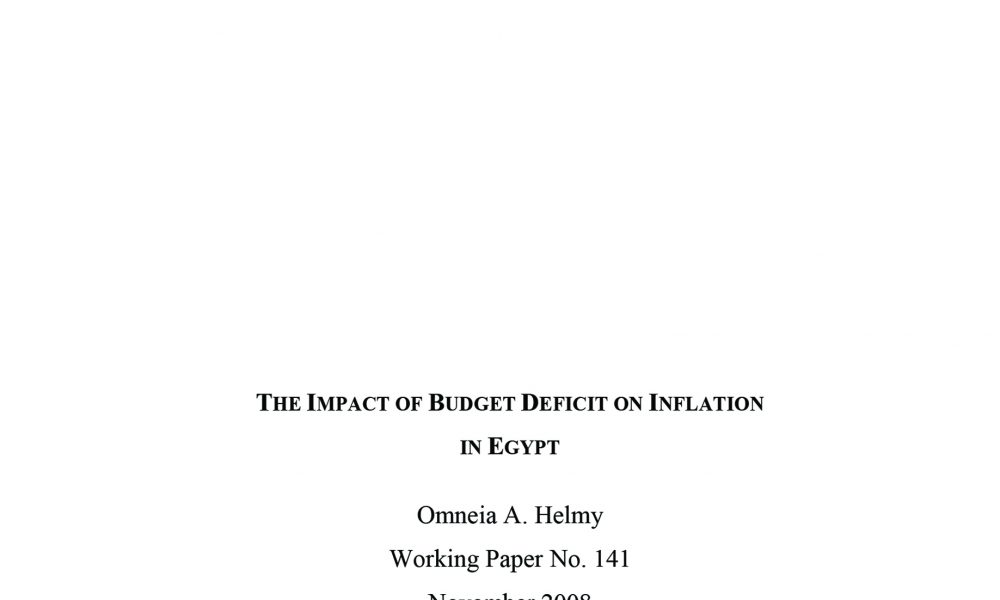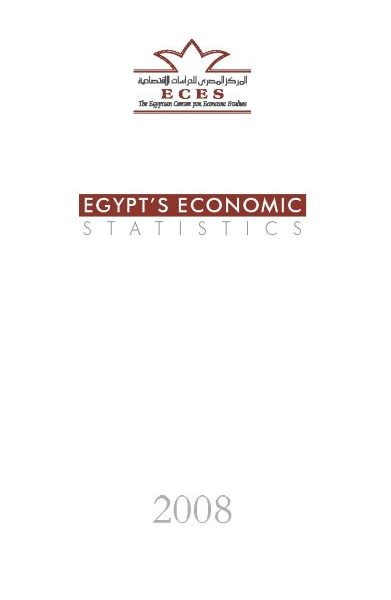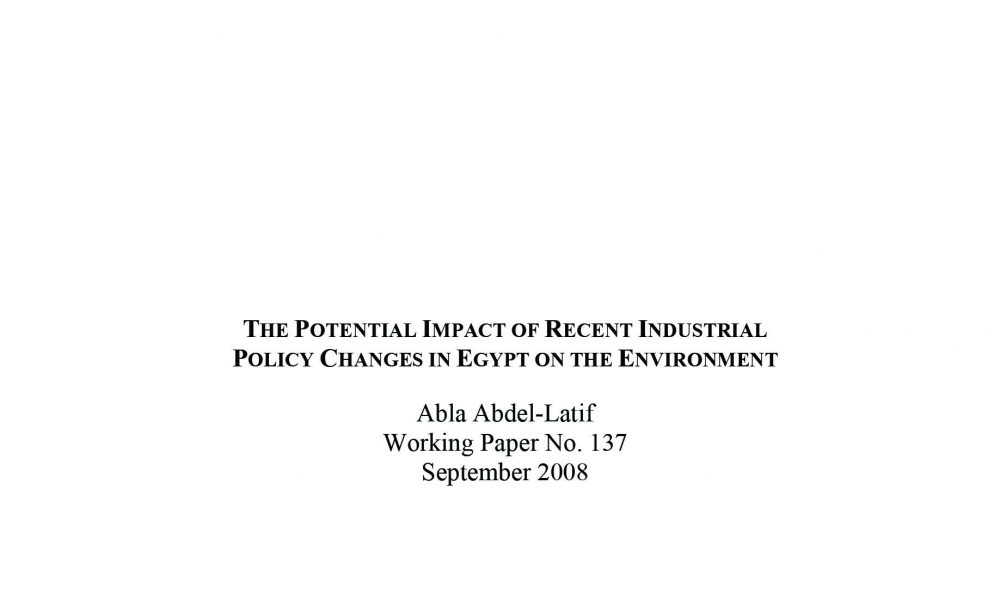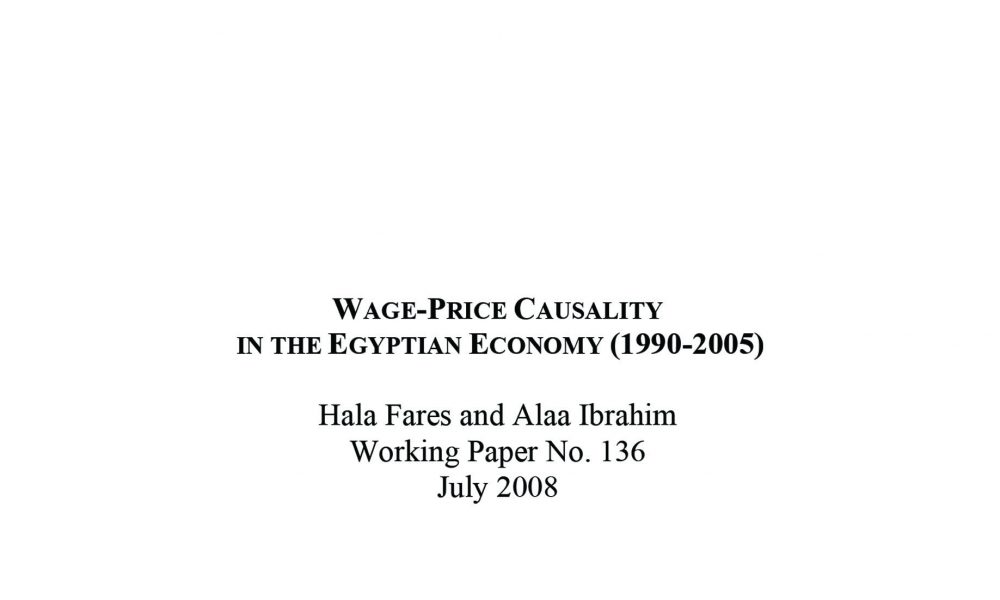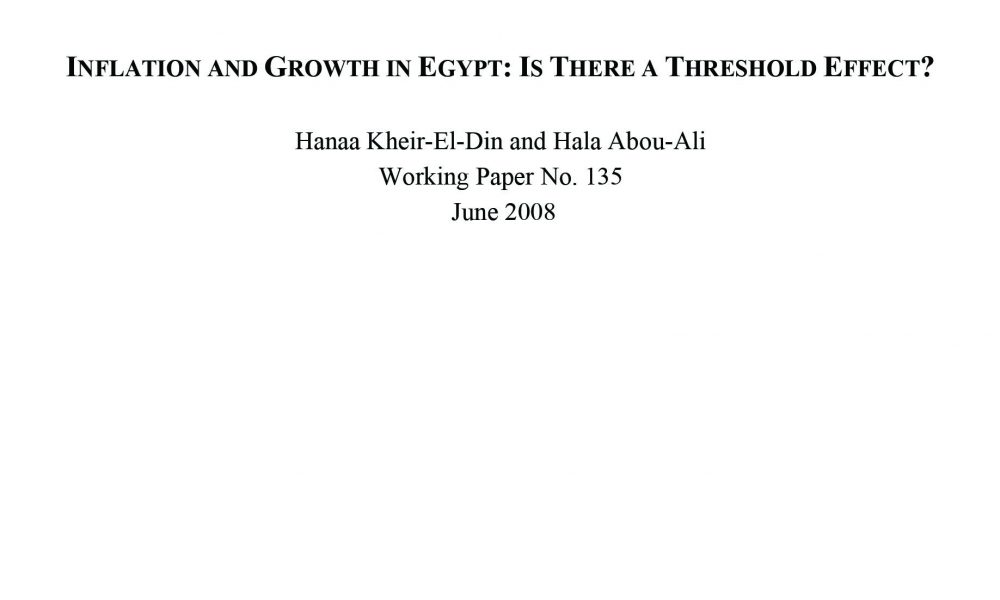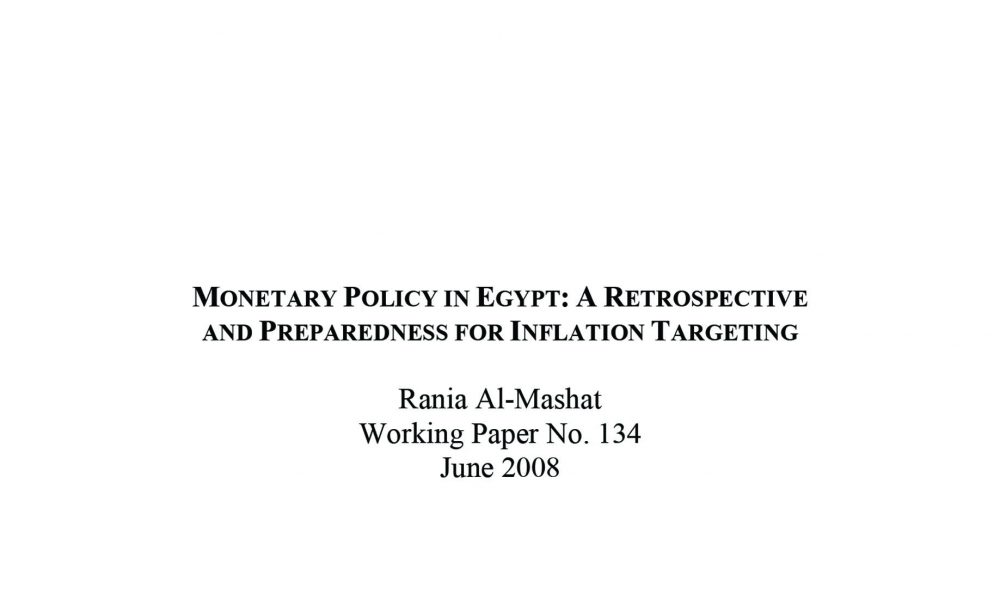Abstract: This paper investigates the short-run dynamics and long-run relationship between budget deficit, its sources of financing and inflation in Egypt using annual data for the period 1981/82-2005/06. The empirical results of Johansen cointegration analysis suggest that in the long-run inflation is not only related to the budget deficit but also to its sources of […]
Abstract: In spite of the increasing contribution of small and medium enterprises (SMEs) to enhancing economic growth and job creation, a number of factors still impedes their growth and ability to contribute more effectively to economic development. This paper seeks to examine and analyze the impact of enhancing linkages between SMEs and large enterprises on […]
Abstract: This paper discusses public-private partnerships (PPPs) as a means of providing public services, especially in the area of educational support services. The aim is to offer proposals for reform in light of international literature and experience. The study notes that PPPs have witnessed a boost in Egypt with the implementation of the economic reform […]
Abstract:This study attempts to address the concept of corporate social responsibility (CSR), itsdevelopment over the years, benefits that can be achieved as a result of CSR as well as ways of evaluating and regulating its practices. The paper does so in light of successfulinternational experience to draw lessons from best practices in this area. In […]
Intended mainly for investors and the business community, this annual publication provides summary data and information on the various aspects of the Egyptian economy.
Abstract: This study uses a Granger causality test to examine causality between wage growth and price inflation in Egypt. Two indicators are used as measures of inflation; the consumer price index (CPI) and the wholesale price index (WPI). Wages are classified into public and private sectors wages. The study finds that changes in public sector […]
Abstract: This paper addresses the relationship between inflation and growth in Egypt for the last quarter century. Two distinct sub-periods are observed: somewhat higher and more volatile GDP growth rate is associated with higher inflation prior to 1990/91; from this year onwards, lower and less volatile growth is associated with significantly lower inflation. It was […]
Abstract: The Central Bank of Egypt (CBE) has taken serious steps to develop its monetary policy framework with the intention to adopt inflation targeting (IT) over the medium term. Against this background, this paper examines the inflation dynamics in Egypt by estimating monetary models. The empirical findings suggest that the money gap model based on […]


